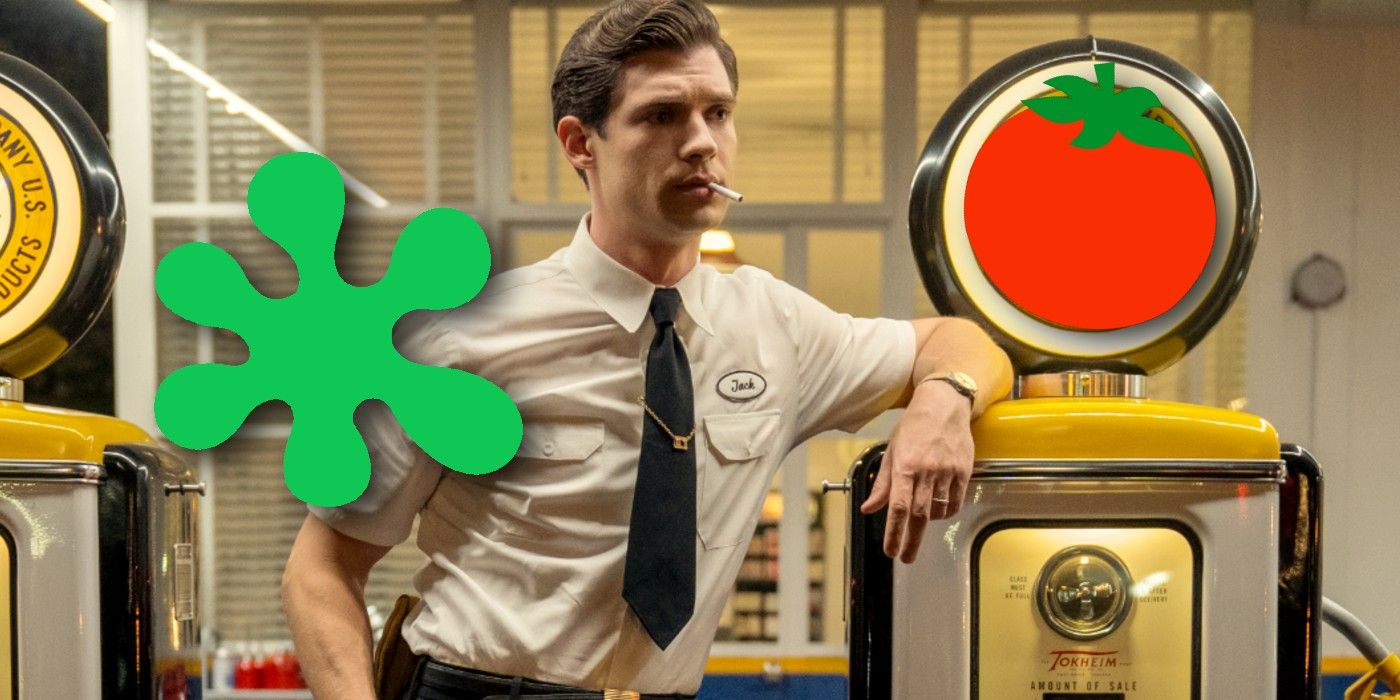Ryan Murphy and Ian Brennan’s drama series Hollywood on Netflix has received mixed reviews from critics across the board. While some praise the show for its stylistic re-imagining of Hollywood history, others criticize it for its unrealistic take on the struggles of minorities in old Hollywood, and for being a misguided attempt at writing an alternate history. Murphy and Brennan’s series tells the story of marginalized people trying to make it big in 1940s Hollywood, but not everyone appreciated the creative liberties that it takes.
On Rotten Tomatoes, Hollywood currently has a 57% critics score out of 117 critic ratings. Despite cinephiles usually having a built-in nostalgia for stories about old Hollywood, a lot of reviewers did not embrace Hollywood‘s fantasy the same way they did Quentin Tarantino’s Once Upon A Time In Hollywood, which also told an alternative version of history that imagined a slightly happier ending.
Click the button below to start this article in quick view.
Loosely based on the book by Scotty Bowers, Scotty and the Secret History of Hollywood, Hollywood centers around a sex ring at a Hollywood gas station where the attendants can provide their patron with a “full-service” experience. According to Bowers, who died in 2019, the gas station’s escorts serviced big Hollywood names from Cary Grant to Katherin Hepburn. Rock Hudson (Jake Picking) is just one of the real-life legends that are fictionalized in Hollywood. While there were rumors that Hudson led a secret gay life, Hollywood fully embraces those rumors by giving Hudson an African-American screenwriter boyfriend, Archie Coleman (Jeremy Pope), and having the two of them come out as a couple.
Hollywood optimistically imagines a version of 1940s Hollywood where an actor can come out as gay and a big studio picture can have a black female lead, and reviewers gave it credit for its diverse cast. However, the show was also criticized by some reviewers for being too self-congratulatory and for inadvertently sending the message that real-life Hollywood figures, such as Hudson and Hattie McDaniel (played by Queen Latifah), simply didn’t try hard enough to stand up to the oppression of the time. Here’s a sampling of what the reviewers had to say:
“At its worst, Hollywood is earnest and cheesy. It’s an epic movie stretched into an uneven miniseries that could be culled to six episodes. The final victory lap is especially grating, as Murphy and Brennan pat themselves on the back for hammering home points about the importance of representation onscreen. There is an inherent victory in such a diverse show executive produced by Murphy’s Pose collaborator Janet Mock, a transgender rights activist who also co-writes and directs two of Hollywood’s better episodes. But please hold your applause for after the credits roll.”
“An alternate history where Ainsley makes Wong a star, as they both navigate America’s racism through an Asian-American lens, would be fascinating, a story well worth telling. The problem is, as with so many Ryan Murphy projects, this strong idea is just one thread in an overcrowded story. By the time Hollywood gets to the Wong subplot, it’s Hollywood’s third major interesting idea. And though the miniseries only has seven hour long episodes to work with, it isn’t the last great idea, either.”
“Some of the older performers find moments of truth in the thin scripts they’ve been given, particularly McDermott’s take on a silver fox who knows the system and the great stage actor Joe Mantello as a studio head who has been forced to hide his sexuality. Mantello understands that this issue is far more complicated than refusal to accept shame. And I know that Murphy does too—he has created some of the most complex and nuanced takes on acceptance that have been on TV in the last two decades. It just feels like he got caught up in his own vision here, seduced by the lights of Hollywood into creating something with no consistent tone or vision.”
Hollywood worked better for some critics than it did for others, earning praise for its obvious love for the era and for its strong cast. Some reviewers found its optimism (however unrealistic) to be refreshing and unique. Here’s are some of the more positive takes on Hollywood season 1:
“This new series from Ryan Murphy received a surprising amount of hate from US and UK critics but – while it may not be his finest work – it’s still a rollicking good tale… The script regularly has the snap and pop of the movies it celebrates… And like pretty much all Murphy’s work, Hollywood isn’t simply eye candy (although there’s plenty of that). He always has something to say, and if this satire of the movie business… sometimes gets a bit muddled or speechy, it’s a thoroughly entertaining ride all the same.”
“I understand the desire to create it, and I think all the people behind it did it not for self-contrary reasons, but because they all have felt that struggle to see themselves reflected in media. They wanted to make hope. It’s not perfect, and it certainly isn’t for everyone, but I also can’t find myself unhappy that an attempt was made.”
NPR:
“At times, it feels like an impractical fable. But Netflix’s Hollywood is also an ambitious, well-crafted attempt to take control of the narrative, creating a vision of classic Hollywood that modern audiences can watch with a lot less shame and anger.”
The major dividing point for critics was Hollywood‘s overly-sunny imagining of how progress in the film industry could have been advanced much earlier, and whether it earns its happy ending. That’s a matter for individual assessment, but perhaps Murphy, who has championed for minorities both on and off the screen with shows like Pose, should get a pass for romanticizing his fantasy with Hollywood - just as Tarantino did with Once Upon a Time in Hollywood.
